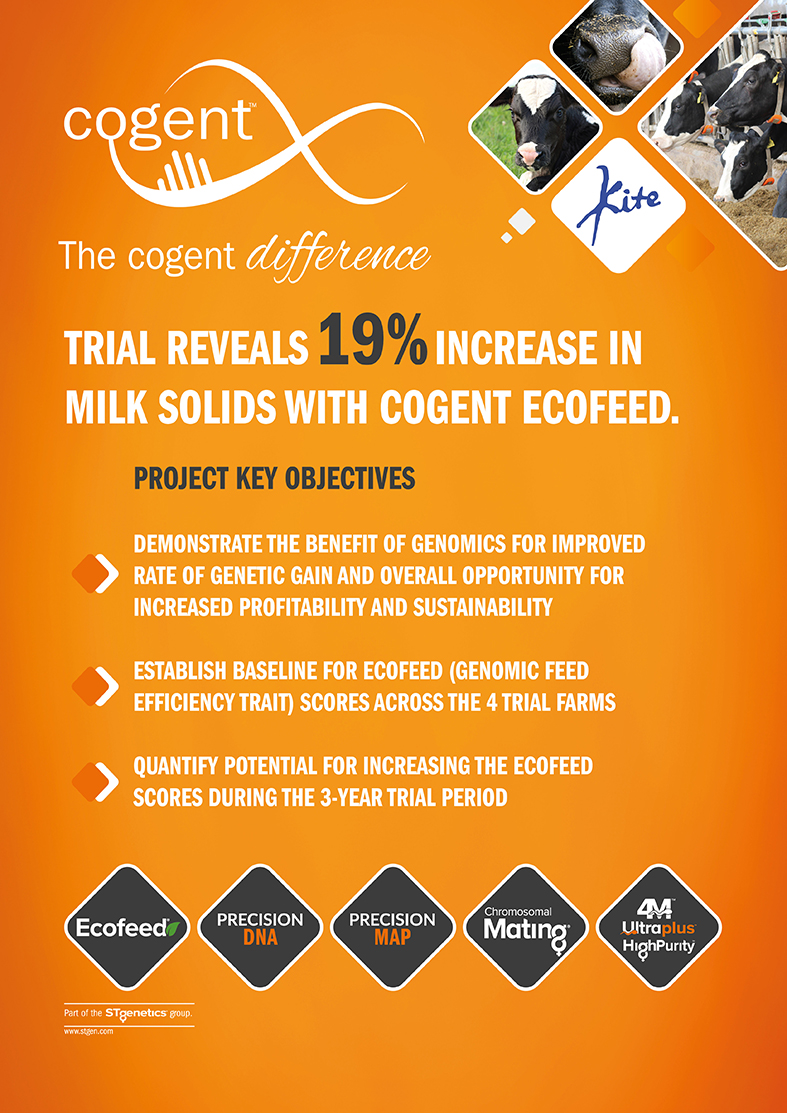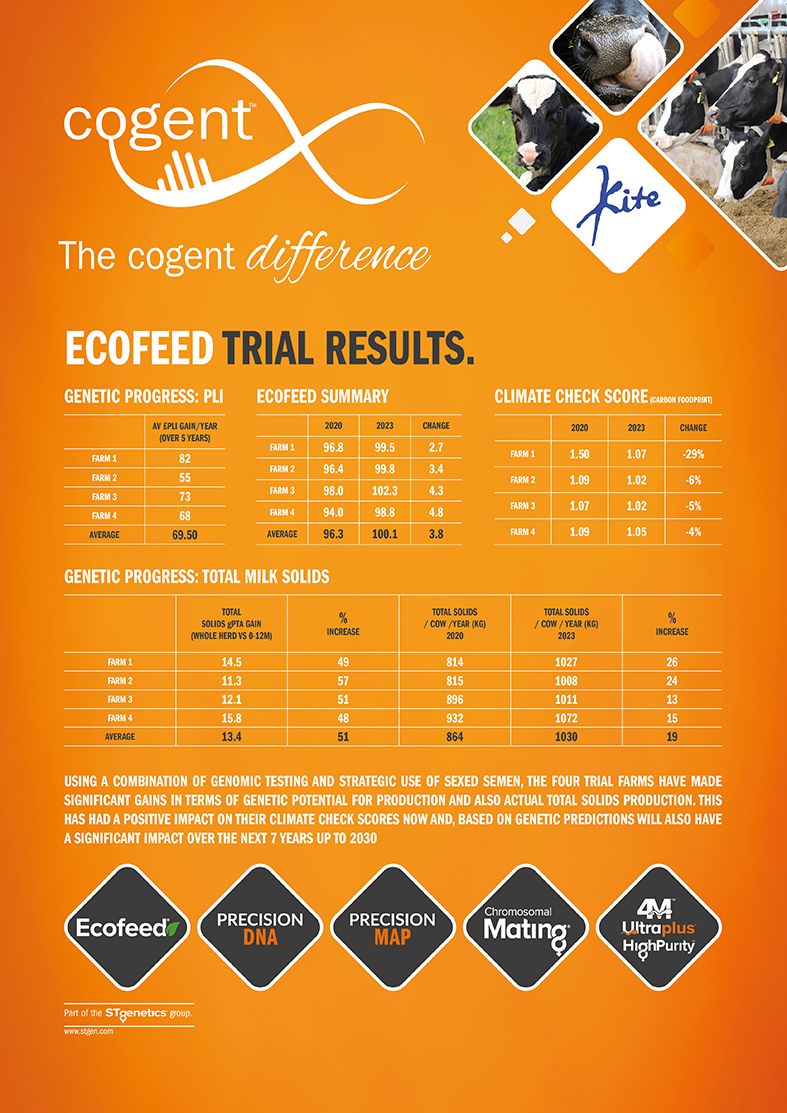The EcoFeed project, a 3-year collaboration between Cogent and Kite Consulting, demonstrated the benefits of using genomics to improve productivity and sustainability on four commercial dairy farms in Derbyshire. It took place from 2020 to 2023, with herd sizes ranging from 180-500.
The project investigated the potential of genetics to accelerate productivity and sustainability on four Arla farmer and Asda Pathfinders Innovation group members. It also aimed to establish baseline EcoFeed scores and quantify the potential for increasing these scores over the trial period.
EcoFeed is an index introduced by Cogent Breeding in 2017 that identifies animals with the genomic trait to produce more milk using less feed resources. It focuses on feed efficiency conversion and production traits. EcoFeed aims to predict Residual Feed Intake (RFI), the difference between actual and predicted Dry Matter (DM) intakes, based on body size and production.

Key findings of the project include:
- The average rate of genetic gain quantified by £PLI was £69.50/year over 5 years, 16% higher than the UK average of £60/year
- Total milk solids increased by an average 19% for the four farms from the beginning of the project in 2020 to the end in 2023
- All four trial farms achieved over 1000kg/cow/year in actual total solids performance in 2023, with up to 50% improvement attributed to genetics
- The average genetic gain for total milk solids (gPTA) was 51% higher in the 0–12 month heifer group compared to the whole herd – indicating their potential to produce more milk solids when they enter the herd
- EcoFeed scores improved by 3.8 points on average between 2020-2023, equating to a 0.2kg/cow/day DM intakes saving
- Climate check scores improved by 11%, with genetics playing a significant role
- Genetic modelling predicts a 14% reduction in carbon footprint (kgCO2e/kg ECM) on the four farms from 2023-2030 due to increased genetic gain

The project combined genomic testing, sexed breeding strategies, and a breeding programme recommended by Cogent’s PrecisionMAP analysis to select and breed the most efficient cows and heifers. It demonstrated the power of using genomics and strategic breeding decisions to drive both profitability and sustainability in dairy herds.
Some genetic strategies that are worth focusing on to improve the sustainability of a dairy herd include:
- Maximising production per cow space, without compromising fertility and health traits
- Leveraging genomic testing and selective sexed semen to accelerate genetic gain
- Extending the average number of lactations in a herd – ideally more than 4
- Keeping cow size in check to reduce maintenance costs
- Selecting for higher EcoFeed scores as a secondary breeding objective
The results of the EcoFeed Project, show categorically that you can increase profitability and feed efficiency at the same time. To learn more about implementing these strategies on your farm, contact your local Cogent Genetics Consultant or call us for free on 0800 783 7258.
Together, we can develop the best breeding strategy to maximise profitability and sustainability for your farm.